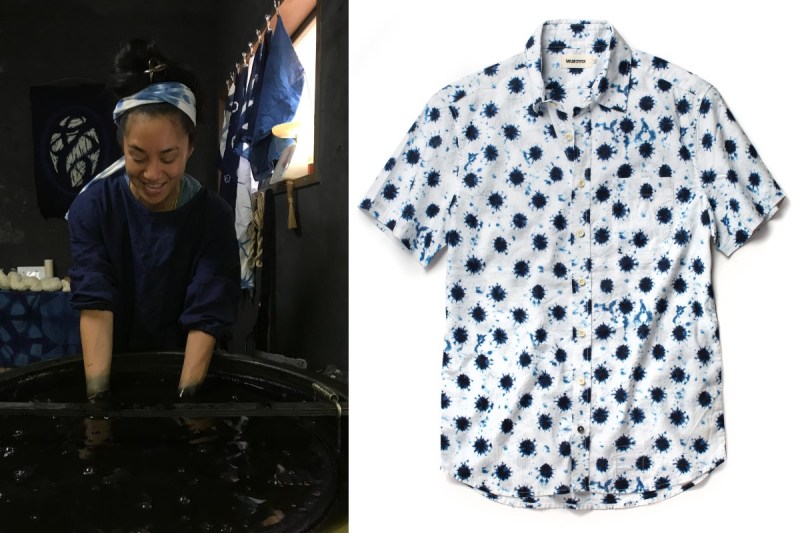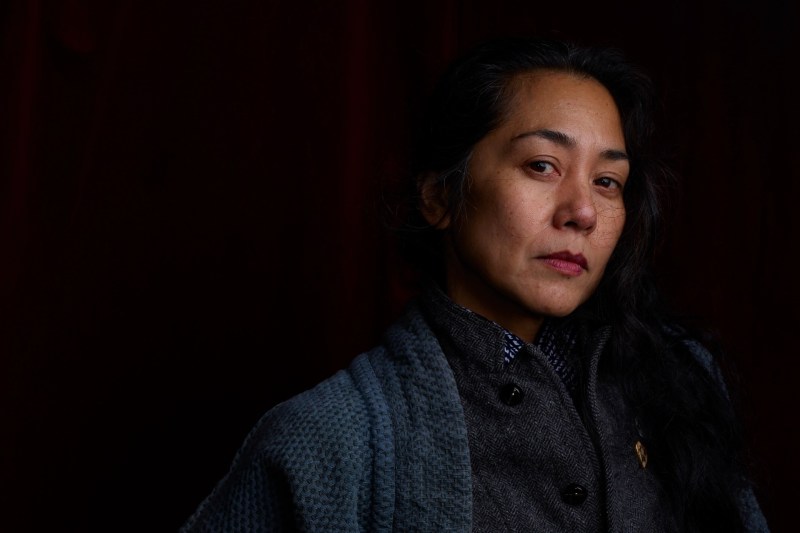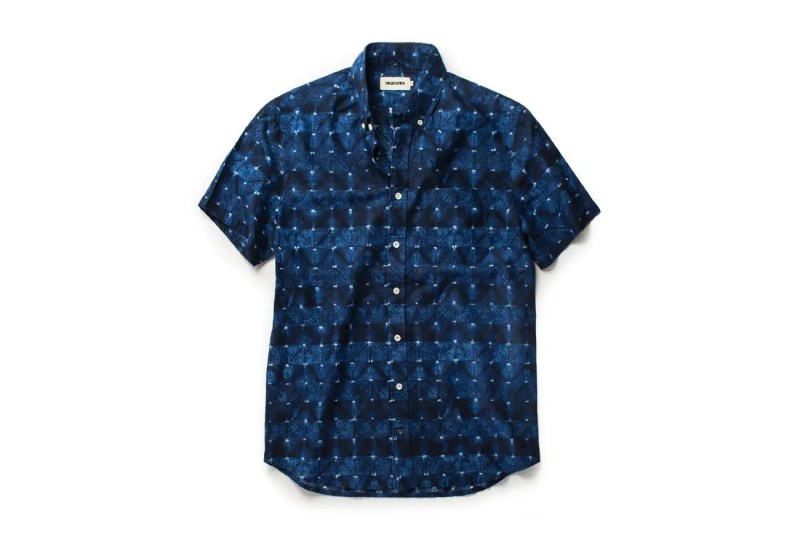While the Industrial Revolution, beginning in the 18th century and reaching its peak in post-WWII manufacturing, improved access to communication, health care, transportation, or more, the world also lost craftsmen. Artisans left small communities to work in factories in urban centers.
Mastering tools, crafting custom goods with one’s hands has become a rarer and rarer skill in America today. This is why companies like Taylor Stitch seek out makers to create textiles “responsibly built for the long haul.” It seems that Taylor Stitch found a good one in Teresa Misagal.

Taylor Stitch partnered with Misagal’s Dailola, a Brooklyn-based crafts house, to produce a limited edition, hand-dyed indigo collection. The Hand-Dyed Collection, a limited run of two shirts and two bandanas, features designs and apparel achieved using traditional craftsmanship, steeped in age-old shibori dye techniques.
Like many of the best discovery stories, Misagal founded Dailola (named after her dogs Dailo and Lola) in 2014 after a happy accident. In preparing to vend her culinary handiwork, a granola line named one of New York Magazine’s Best of 2014, Misagal needed something to keep her tent cool during hot summer days at Smorgasburg, the largest weekly open-air food market in America (spreading across several New York City locations). Instead of a simple solution, Misagal opted to make indigo-dyed fabric for decoration.
“People kept coming and looking at it and wanting to buy it,” Misagal said. “I didn’t know how to do patterns, though, so I started researching design.”

The artisan found her muse in shibori style tie-dye, an over 1,000-year-old Japanese art form. Shibori artists use thread to isolate many small repeated points on fabric. After dyeing these spots with plant-based indigo isolate, captivating designs emerge — designs that tend to be far more intricate and detailed than modern tie-dye.
“Working with indigo, it’s always changing — how strong it is on the fabric, asking if I need to adjust, you become one with that. It becomes your partner. You have to relate to its subtleties,” Misagal said.
In order to master her craft, Misagal began traveling to Japan, seeking out the odd English-speaking class here and there. Within a year, she packed up her things in Brooklyn, rented out an apartment, and moved across the Pacific to the home of shibori. Traveling from town to town, Misagal built a network of shibori masters and began to excel in the ancient skill.
“You see the beauty of it when you work with it for a while,” Misagal said. “You don’t just toss it in and let it create its magic. I want to be that magic.”

After a couple of years of honing her work, Misagal connected with fashion designer Anna Sui and with outerwear company Burton. With this growing web, a former Burton employee, now at Taylor Stitch, suggested working with Misagal on a new line. The result? The Hand-Dyed Collection — two shirts featuring Dailola designs and 150 hand-dyed bandanas that Misagal has already sent out for delivery to Taylor Stitch. Like so many creators before her, the artist lets the cosmic inspiration flow through her.
“This thing that I do connects me to people in all different places,” Misagal said. “When you love what you do it vibrates through you. When you’re honoring yourself, the universe is like ‘Knock, knock. I’m bringing this to you. Are you ready for it?’”
Misagal has shown that she can bring this singular hand-made thing into existence, an uncommon product in our digital, prefabricated existence.



